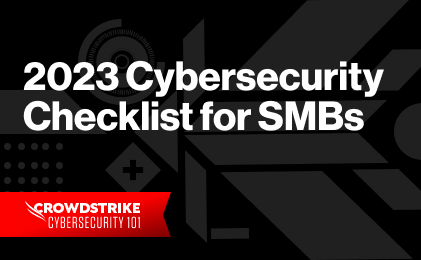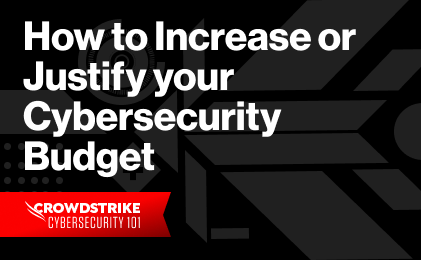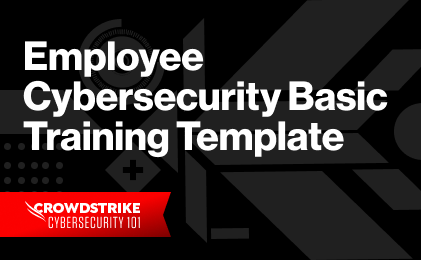How to choose between free antivirus vs paid antivirus software solutions
You get what you pay for — or so the saying goes. But does it apply to antivirus protection?
For many small businesses, installing a free antivirus solution may seem like more than enough to protect the business. After all, what hacker is going to attack a small business? Surely there are bigger targets out there!
Unfortunately, that’s exactly the kind of logic that hackers are counting on. In recent years, the number of attacks on small businesses continues to grow — and the cost of resolving those attacks has increased — as cybercriminals increasingly target small- and medium-sized businesses precisely because they do not have robust tools in place to detect and prevent attacks.
In this guide, we outline the key differences between free and paid antivirus solutions available to small businesses and help owners decide which option is right for their company. Let’s first define what antivirus software is and how it works.
Learn More
Small businesses are often easy prey for cybercriminals on the hunt for sensitive business data and customer information. With CrowdStrike, you get enterprise level-protection and support at a price you can afford – because every SMB deserves protection, regardless of headcount.View cybersecurity solutions for SMBs
What is antivirus software?
Often considered the baseline of cybersecurity, an antivirus solution is a type of software that is installed on devices like computers and laptops to detect, prevent and remove a variety of cyberattacks. While the solution name specifically calls out protection from viruses, these tools actually protect against all kinds of attacks, including malware, ransomware, phishing and, of course, viruses.
Free antivirus
As many small business owners and consumers know, there are a variety of free antivirus solutions available on the market today. These tools offer basic protection for computers, laptops and tablets; some offer adapted versions to protect smartphones and other mobile devices. Core functions include:
- Blocking dangerous files and applications
- Warning users about suspicious websites commonly used in phishing attacks
- Routinely sweeping the device to identify infected files or apps
- Removing or offering cleanup options for infected files or apps
- Identify unrecognized devices that are using a network
Paid antivirus
Paid antivirus solutions offer more comprehensive and robust protection than free solutions. A paid antivirus solution will generally include all the features and benefits of the free version, as well as some additional functionalities. These include:
- Additional layers of protection: Paid antivirus software usually includes additional security functions to protect against a wider range of threats, opportunities to customize the service by blocking certain sites and the ability to back up devices or data. In many cases, these tools leverage advanced technology, such as machine learning and artificial intelligence to identify issues more quickly and precisely than free antivirus software.
- Proactive security measures: Paid solutions generally have more advanced capabilities when it comes to preventing infections. This means that the solution is proactive in nature and will identify and stop infections before they occur, as opposed to free antivirus software, which is mostly reactive and detects infections once they have already happened.
- Protection from unknown threats: While free antivirus solutions can protect against known viruses, most cannot detect unknown threats, or malicious files whose signatures the system has not yet identified. Most premium antivirus tools protect against both known and unknown or yet-known threats.
- Support: One of the most important distinctions between a free and paid antivirus solution is customer support. If a breach occurs, many paid solutions offer 24/7 live remediation support. This can not only help restore the affected device, but also keep the attack from spreading to other computers — a critical capability for small businesses.
- Guarantees: Some paid solutions also offer warranties or guarantees that outline what the user is entitled to if a breach occurs while the solution is being used properly.
Risks of free antivirus software
As alluded to above, there are several risks that can be associated with relying on a free antivirus solution. These may include:
No protection from unknown or yet-known threats. Most free antivirus tools use strings of characters called signatures that are associated with specific types of malware. The software can detect these patterns and block new attacks that contain the same signature. While this is helpful for detecting known attacks, this approach is becoming obsolete as sophisticated attackers have found ways around traditional signature detection.
Reliance on a reactive security model. Most free tools protect organizations only against viruses and malware whose signatures are logged in the tool’s database — or identify an attack based on system activity once the device is infected.
Limited support and remediation. In most cases, free antivirus tools do not provide any customer support beyond basic FAQs or troubleshooting guides.
Additional considerations:
Terms of use. Most free antivirus solutions are designed for use by individual consumers. They are licensed for use by private individuals on a home network. In most cases, they are not approved for use by small businesses. As such, any guarantees or warranties associated with the product may not be applicable if the user is conducting business with the device. There are relatively few free antivirus products on the market today that are geared towards small businesses. This is important because small businesses have fundamentally different needs and risks than individual users.
Risk and impact. It is also important to consider that for small business owners, the impact of a breach goes beyond the loss of a device or disruption associated with recovering a personal account. While personal breaches also have serious consequences, for small businesses, these attacks can be truly devastating, resulting in stolen data, stolen customer information, suspended operations and so much more — all of which have a real cost to the business in terms of revenue and reputation.
Evolution of free antivirus. In recent years, there has also been a marked shift in the free antivirus market. While some vendors still offer a free version of their antivirus solution, many have stripped down the features of those tools to the bare essentials and consistently push users to upgrade to a paid version of the tool.
Expert Tip
Today’s solutions may install adware, spyware and other unnecessary or potentially dangerous components on the computer. This can sometimes create more risk for the business. For this reason, small business owners must be discerning especially when choosing a free solution.
Type of user. Many antivirus solutions are custom built for one operating system, such as Windows or macOS. For small businesses that use a mix of computers and mobile devices, especially if the business allows employees to use personal devices, it is important to choose a solution that supports and protects all devices, regardless of operating system.
5 factors to consider when selecting free vs paid antivirus
For small business owners, cybersecurity is an essential part of the IT strategy. When evaluating free and paid antivirus solutions, it is important to consider the following:
1. Budget
- What can your organization realistically afford on an antivirus solution?
- Does the cost of the solution vastly outweigh the risk of a breach or security event?
- Does your organization have a cyber insurance policy? How will the cost of that policy change based on the use of the selected tool?
2. Features
- What specific risks does your organization face? Does your business possess large amounts of data or sensitive customer information that would make it a target for a breach?
- What security features does the free version of the antivirus solution provide? How does this compare to a paid version?
- How do various paid solutions stack up against other paid versions?
- Is the product specifically designed for use by small businesses?
- Does the product support a variety of devices, including mobile phones, across all major operating systems?
3. Support
- What support services are offered as part of the solution set during deployment, operation and, in the event of a breach, remediation?
- Does the vendor provide 24/7 support to help quickly contain and resolve security events?
- What resources are available to help restore a system in the event of a breach?
- Does the vendor offer a security guarantee for the product?
4. Product reviews and analyst ratings
- Does the selected solution offer positive, recent reviews by reputable experts?
- What limitations or caveats do analysts or experts list about the solution?
5. Advertisements
- Does the free antivirus software contain advertisements?
- Does it outline any other technologies bundled into the solution that can be considered adware or spyware?
Expert Tip
Cybersecurity vendors vary widely depending on the focus of their offerings, regions they serve and their overall reputation. Get eight factors to help you assess a vendor that’s the best fit for your business today and in the years ahead. Learn: How to choose a cybersecurity vendor
Benefits of paid antivirus software
There are clear and important benefits associated with using a paid antivirus solution, as opposed to a free version of such a tool. These include:
- Reduced risk of breaches and cyberattacks
- Enhanced protection against a variety of malware and viruses, including both known and unknown threats
- Proactive security that prevents breaches before they occur
- Faster resolution times and less impact to the business in the event of a breach through dedicated customer service and support
- Enhanced compliance with government regulations regarding protection of sensitive customer data
Next steps with CrowdStrike
Not all paid antivirus solutions are created equal. Don’t risk your business with a no-name vendor or inadequate protection from a free solution.
Comprehensive, top-tier coverage may be more affordable than you think. CrowdStrike Falcon® Go is an easy-to-manage and affordable solution that prevents ransomware, malware and the latest cyber threats.
- Protect your business with the industry-leading, next-generation antivirus solution proven to stop advanced attacks.
- Leverage device control to help you monitor and govern USB devices that could put your network at risk.
- Deploy one lightweight sensor and start protecting your business instantly, no matter where your devices are.
Ready to try CrowdStrike? Start a free, 15-day trail of the Falcon Platform and protect your business from ransomware, malware, and other sophisticated cyberattacks


